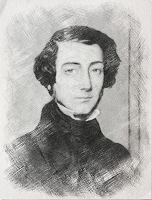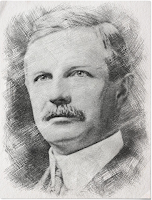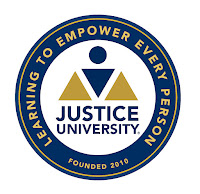In a piece in this past Monday’s Washington Post, “China’s Contradictory Messages on Democracy and Hong Kong” (12/27/21, A-15), Keith B. Richburg of the University of Hong Kong noted how the People’s Republic of China is talking out of both sides of its mouth when it comes to democracy. We agree, although not perhaps in the same way as Mr. Richburg.
Take, for example, Mr. Richburg’s implication that China’s new enthusiasm for what they call democracy might not be entirely kosher. There is more than a hint that how the Chinese power structure defines democracy does not exactly conform to how others in the west define it.
That is absolutely true, but it does not detract from their sincerity — or prove that how the western democracies define it is any better. We happen to think it is, but that does not mean we think the western democracies have the best definition of democracy, either.
Come again?
 |
| Alexis de Tocqueville |
That’s right. As we found out in our research for last year’s Economic Personalism from Justice University Press, and the upcoming (March 1, 2022) The Greater Reset from TAN Books, there are a number of different meanings of “liberal democracy,” only one of which takes into account the dignity of every single human being, without exception.
To explain, we take as our starting point Alexis de Tocqueville’s monumental Democracy in America (1835, 1840). Baffling many latter-day readers who assume that “liberal democracy” has always meant what it does today (and which is rather hard to pin down even now!). de Tocqueville identified three basic types of liberal democracy. These were:
· “French” or European (the sort condemned by religious and political conservatives and orthodox, what is today known as liberalism . . . sometimes),
· “English” (the sort criticized by the religiously and politically orthodox, usually termed “conservative” today), and
· “American” (which today is hardly mentioned, although often confused with liberalism, conservativism, and libertarianism . . . and we could throw in a lot of other isms, if you like, it is the type that should be called “personalist” but usually isn’t).
 |
| Slightly different definitions of democracy. . . . |
According to de Tocqueville, the French or European type of liberal democracy is based on the sovereignty of the collective. This is the type of democracy promoted currently by the People’s Republic of China.
English liberal democracy (again, according to de Tocqueville) is based on the sovereignty of an élite, although it usually pays lip service to individual sovereignty and rights . . . while at the same time restricting it pretty much exclusively to the élite. This is the type of liberal democracy that gets grouped under the heading of “Western democracies” or some similar label.
 |
| Daniel Webster |
And the American form of liberal democracy, at least according to de Tocqueville? It’s not usually mentioned in polite company, but it’s based on the effective sovereignty of every human being, not just the usual conservative lip service.
Where sovereignty resides is important as that determines where people think power should also reside — and thus who should own capital. Why? Because as Daniel Webster noted, “Power naturally and necessarily follows property.” Consequently,
· In European liberal democracy, the State ideally controls/owns property and everyone’s lives,
· In English liberal democracy, an élite controls/owns property and everyone’s lives, and
· In American liberal democracy, as many people as possible control/own property and their own lives.
And that is what Mr. Richburg and virtually every other social, economic, and political commentator on the face of the Earth today leave out of the equation. It’s all very well to talk about having the vote and political democracy — although, as we’ve seen, neither means much if you happen to define democracy differently from those with whom you’re disagreeing.
 |
| William Cobbett |
If, however, you don’t have effective economic democracy — and we mean American liberal democracy of the personalist kind, not the collectivist/socialist or individualist/capitalist kind — then your political democracy, however high its principles and even honest its leaders, is headed for decay and dissolution, even as the outward forms are retained. As William Cobbett said,
Freedom is not an empty sound; it is not an abstract idea; it is not a thing that nobody can feel. It means, — and it means nothing else, — the full and quiet enjoyment of your own property. If you have not this, if this be not well secured to you, you may call yourself what you will, but you are a slave. (A History of the Protestant Reformation in England and Ireland, 1827, §456.)
As “the Poor Man’s Friend” clarified,
You may twist the word freedom as long as you please, but at last it comes to quiet enjoyment of your own property, or it comes to nothing. Why do men want any of those things that are called political rights and privileges? Why do they, for instance, want to vote at elections for members of parliament? Oh! Because they shall then have an influence over the conduct of those members. And of what use is that? Oh! Then they will prevent the members from doing wrong. What wrong? Why, imposing taxes that ought not to be paid. That is all; that is the use, and the only use, of any right or privilege that men in general can have. (Ibid.)
The problem, of course, is how to arrange matters so that people can become owners of capital without redistributing what already belongs to others or redefining ownership so that it becomes meaningless. Fortunately, the Just Third Way of Economic Personalism presents a feasible means for doing so.
 |
| Turner: a frontier is needed |
As presented in the proposed Economic Democracy Act, there is a legislative program of tax, monetary, and fiscal reforms for promoting sustainable economic growth while creating equal opportunity and access for every citizen, every year from birth to death, to become a shareholder in the technological frontier. It is designed to connect every person to the global economy as a fully empowered participant and owner of productive wealth, by dismantling structural barriers in our basic institutions and by financing capital formation through ownership democratization vehicles.
The EDA embodies Article 17 of the Universal Declaration of Human Rights, which states “Everyone has the right to own property, alone as well as in association with others” and “No one shall be arbitrarily deprived of his property.” This economic agenda for the 21st Century provides a blueprint for leaders committed to restructuring the legal and financial system to grow the economy at maximum rates with no inflation, in ways that build a Just Third Way version of economic democracy as the essential foundation for effective political democracy. The Economic Democracy Act promotes an “equal capital ownership opportunity” approach for financing a sustainable and just economy.
The Economic Democracy Act offers a just, free market-oriented way to save the Social Security System as a national retirement income security plan. But, at the same time, the Economic Democracy Act offers a new national policy to foster lifelong “capital income self-sufficiency” as a means to achieve true economic independence for all citizens. If implemented, capital ownership would be systematically de-concentrated and made directly accessible to every person, without reducing property rights of the wealthy.
#30#

